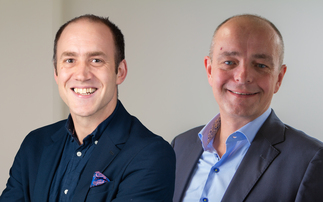How do advisers place profitable protection business, UnderwriteMe's Martin Werth has asked in recent research.
In preparing for the UnderwriteMe presentations at the 2014 Cover Protection and Health Forum we (UnderwriteMe) carried out research among those registered to attend.
While this was a small sample of 132 submissions, the results are fascinating and worth sharing and we entered participants into a prize draw to win an iphone 6.
The winner was announced HERE
In the first question, we asked delegates: For a typical protection customer how many insurers do you contact directly before making a recommendation?
Only one third of advisers rely on a quick quote and 60% typically contact 2 or more insurers before making a recommendation.
The insurer responses paint a very different picture of assumed adviser activity, with 62% indicating advisers use just a quick quote in making a recommendation.
The survey shows there is a significant work commitment for both advisers making the calls and insurers receiving them and highlights the limitations of quick quotes.
Next we asked, taking into account your time and effort in making a protection application and the proportion of cases that complete, do you earn less or more from selling protection compared to other products?
I had expected protection to be less profitable, given the work involved and the uncertainty of the outcome.
However, 53% said it was more or significantly more profitable, in spite of the fact that a high proportion of this group were making 2 or more calls. This result also surprised the insurers as only 35% assumed it was more or significantly more profitable. We should be optimistic that the remuneration model is working.

Finally, we asked if you could use a single application to compare insurer underwritten prices and benefits, with a click to buy, would you sell more protection?
Obviously this is the $64m question for UnderwriteMe. Advisers were unequivocal in their response, with 75% saying they would sell more or significantly more.
On analysing further, interestingly and not surprisingly, significantly more of this group contacted 2 plus insurers (63%) compared to those who said no change in protection volume (50%).
Insurers were less optimistic on the sales upside, with 65% saying no change.
However, two-thirds of this group assumed that advisers made recommendations with just a quick quotes. So with a consistent view of the work activity, hopefully insurers would also see the opportunity to grow new business.
In conclusion, while this is a small sample, the messages were interesting. Advisers make a significant number of calls before making a recommendation.
Nevertheless, the relative protection earnings are good. So a single application process to remove excess work effort and increase earnings will encourage more protection sales. Insurers are perhaps more sceptical as they have underestimate the work effort.
In January UnderwriteMe launches its comparison service. The feedback we have received makes us optimistic this will have a real positive effect on the protection market.
Martin Werth is CEO of UnderwriteMe











